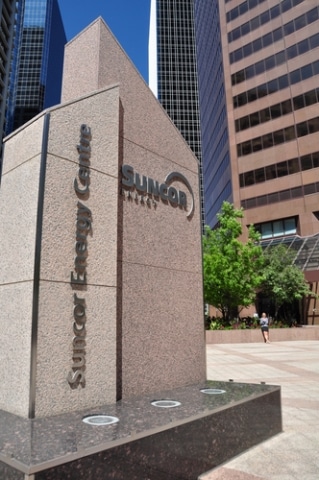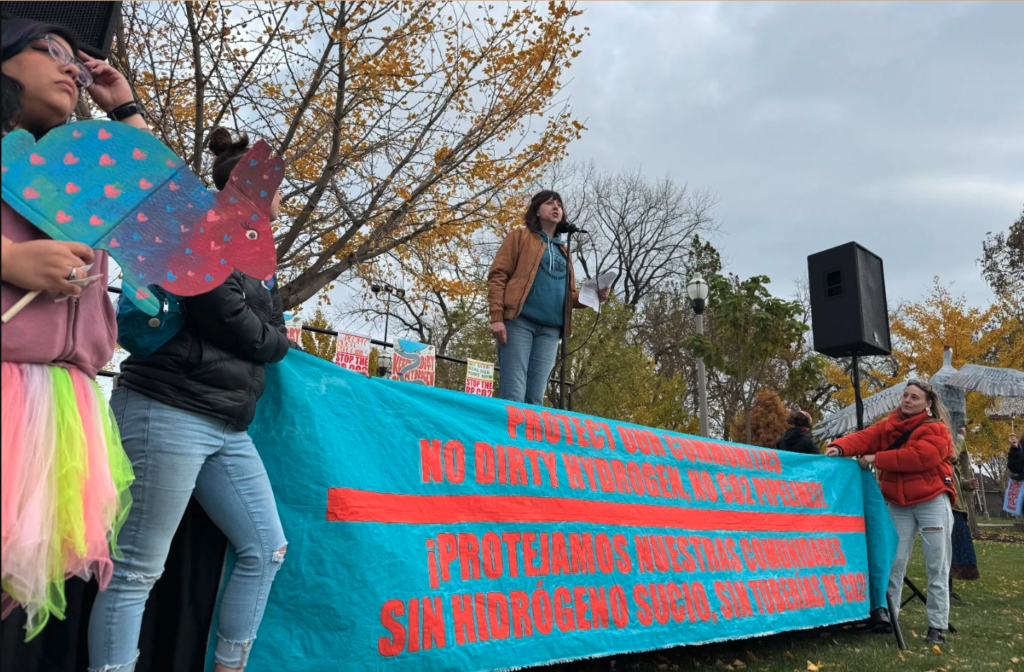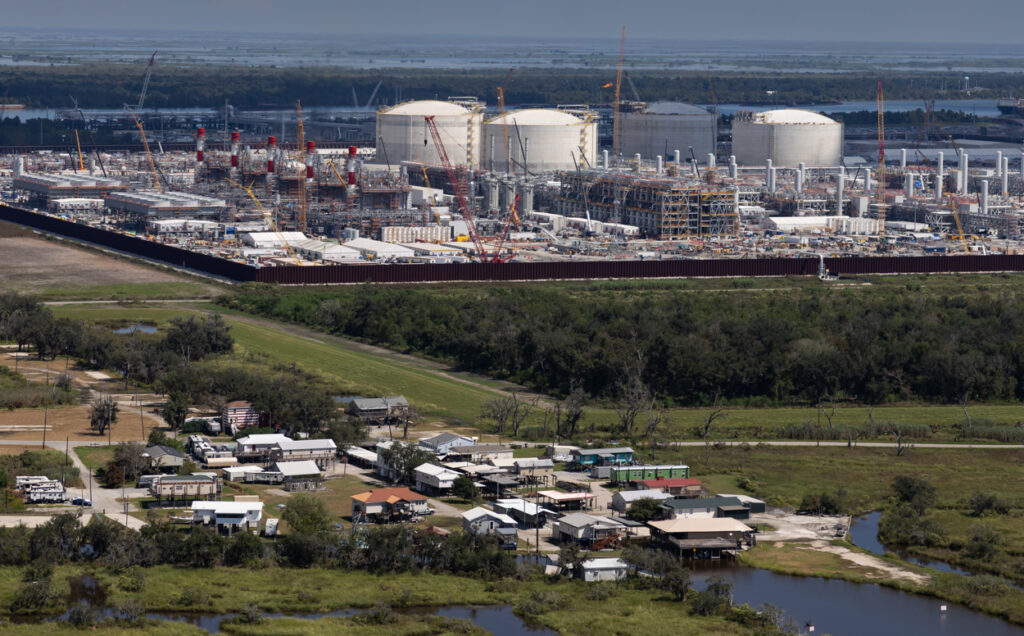This is a guest post by Don Lieber, originally published on PlanetSave.
Suncor Energy, the largest producer in Canada’s tar sands oil operations, has announced it will require fewer major safety maintenance “shut-down” checks at its Alberta production sites, decreasing the required checks to once every five years, down from its prior four-year schedule.
Steve Douglas, Suncor’s vice president of investor relations, said that routine safety shut downs cost the company money due to necessary replacement of equipment, labor, and lost revenue during the shut-down. This was reported by Reuters on June 7.
Ignoring the implications for public health, safety, and carbon-related climate consequences of tar sands operations, Douglas focused on revenue stream, saying, “You’re entirely down during a maintenance period. There’s significant foregone revenue during a period like that. It’s material.”
With not just a hint of Orwellian logic, the decision to require fewer major safety checks was made despite many high-profile Suncor accidents in recent months and years.
Some examples:
- April 2013 — A Suncor storage tank in Port Moody spilled, sending hundreds of barrels of fuel dangerously close to the waters of the Burrard Inlet. It was later reported that the company kept the accident secret, speaking publicly about it only after the media reported the accident — five days after the spill. The Mayor of Port Moody said Suncor failed to notify anybody.
- March 2013 — A spill from one of Suncor’s tar sands facilities in Alberta sent some 350,000 liters of waste water into the Athabasca river.
- March 2013 — Contaminated water poured from a broken pipe at a Suncor tar sands plant for more than four hours before crews could contain the flow.
- March 2013 — Alberta government ordered Suncor to immediately fix a wastewater treatment facility, a full two years after the problem was discovered.
- December 2011 — an accident at Suncor’s refinery in Commerce City, Colorado leaked extremely hazardous waste into Sand Creek and the South Platte River. The Environmental Protection Agency later found that the contamination included high levels of benzene — a known carcinogenic chemical — including in the drinking water at the refinery.
- In 2008, nearly 1 million liters of waste water from a Suncor containment pond leaked into the Athabasca River — and went unreported for up to eight months. The scandal resulted in Suncor being charged by the Alberta government for non-compliance with government Water Act rules.
Suncor’s safety record is not unique among oil companies. The incidents of extraction, pipeline, and refinery accidents — from all companies — is immense. As reported byPlanetsave previously, there were at least three oil spills in the US during just one week in April – largely unreported in mainstream media. Wikipedia’s page on pipeline accidents alone consists of multiple windows, listed by decade and divided by accident type.
Suncor also has a record of dangerous workplace conditions. In this video, Rene Gauthier describes in tragic detail the sub-par conditions at Suncor’s Fort McMurray, Alberta processing plant, which caused the death of his 64-year old father.
Suncor’s vice president, Steve Douglas, nevertheless praised the decision to require fewer safety shut downs, saying, “If you’re doing four maintainance turnarounds in 20 years versus four in 16 years, clearly there is a significant benefit.“
Image Credit: Suncor sign in Calgary, Canada via Jeff Whyte / Shutterstock.com
Subscribe to our newsletter
Stay up to date with DeSmog news and alerts







